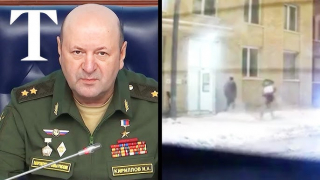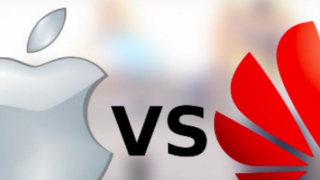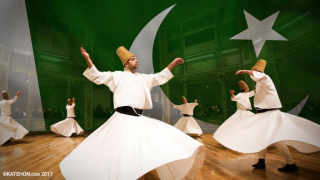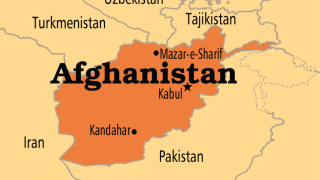Quad or Asian NATO
08.10.2020
As Quad assembled the former colonists (US, Australia and Japan) and the good old colony (India), the Western and Indian media went into overdrive against China. India media was actually reminding the foreign minsters gathered in Tokyo to make it a proper military alliance. An interesting comparison of Quad’s combined military potential vis a vis China was discussed on one of the major Indian media platforms, the WION, with a loud voice that it must morph into a military alliance.
Although no joint communique of the Quad came out, India and US resorted to stereotyped but tongue in cheeks slur against China, with emphasis on Rule based International Order and respecting sovereignty of the nations. It is Quite funny to hear these words from India and US who have waged relentless wars against other nations in past five decades.
Japanese media highlighted the contours of Quad by praising Shinzo Abe and appreciating the new Prime Minister Yoshihide Suga . Nikkei Asia magazine stated that India and Japan signed an agreement on Sept 9, allowing them to share military supplies and logistical support. Japan had inked a similar deal with Australia in September 2017, and Canberra and New Delhi signed one this past June. The three countries are on the same wavelength. The U.S., intent on countering China, looks to build an Asian NATO with the Quad at its core.
Nikkei Asia further stated that Laos is being stretched thin by a Belt and Road project that has forced the poor country to borrow heavily. In Indonesia, a high-speed railway funded through Chinese investment has faced delay after delay. The time is ripe for quality infrastructure investment by the U.S.-Japan-Australia trio. As it happens, Suga has chosen Vietnam and Indonesia for his first official foreign visits as prime minister, making clear that he intends to firm up relationships with core ASEAN members to counter China. The new Japanese leader likely will also face the challenge of dealing with India's withdrawal from the RCEP, much as Abe shepherded the Trans-Pacific Partnership to completion without the U.S.
In a recent interview with Japanese Nikkei magazine, former U.S. Deputy Secretary of State Richard Armitage discussed the inclusion of other players in the Quad. He stated that Japan needs to strengthen cooperation with the U.S. and other partners as it digs deeper into the push for a free and open Indo-Pacific. As leaders in Tokyo, Washington, New Delhi and Canberra come together to push rules-based international order in the Indo-Pacific region, Armitage, a political stalwart, discussed how Japan's new leadership and the U.S. can deepen that cooperation.
Earlier, Indian think tanks and RAW backed outlets like ORF had hinted at Quad plus. In an article published by ORF in May 2020 the writers stated that there are some early hints of how international partnerships might be shaped by the Covid crisis. Recently, senior officials of the four “Quad” countries (Australia, India, Japan and the United States) teleconferenced about how to respond to the pandemic. Quad meetings are no longer unusual. But this one was special because it included three additional Indo-Pacific powers: New Zealand, South Korea and Vietnam. The call, reportedly initiated by the US Deputy Secretary of State Steve Beigun, was intended to exchange notes on how these powers were tackling the COVID-19 pandemic, with the purpose of targeting China.
We had conducted an analysis of Indo Pacific alliance in a previous article published in Geopolitica.Ru. Even at the cost of repetition, we are covering some extracts of that article as it has become more relevant in the backdrop of Quad meeting held in Tokyo:
Earlier this year in Jan the honourable Russian foreign Minister Sergey Lavrov had conveyed Russian thought to Indian and regional audience in no unequivocal terms that Indo Pacific was a red herring being sold by the West to create cleavage between the Eurasian countries. It may be interesting to dissect the talk by Sergey Lavrov delivered at Raisina Dialogue in Delhi on 15 Jan 2020, as it gives us some insight into how Russia views the shaping of new global order.
Lavrov deliberated that unfortunately the powers against the more democratic and multipolar world are trying to hamper the process of a more open and fair world. Our western friends use the language like International Law less and less and have coined a new word Rule Based World order, this may be dangerous as you are imposing upon others, this makes it harder to deal with global issues of transnational nature, like terrorism, water security, food security, organized crime, bringing weapons to outer space and even weaponising the cyber space.
The gist of Lavarov talk and questions raised by him are posted below:
- He highlighted that many great people are trying to make this region unite and competitive. President Putin during discourse on Russia ASEAN summit talked on Grand Eurasian Space expanding right up to Indonesia and integrating Eurasian Economic Union, ASEAN and SCO and should include all countries in grand Eurasian space. Russia has also promoted Asia Pacific cooperation.
- While deliberating on the Indo Pacific, Lavrov linked it with the jargon of Rule Based World Order, propagated by the West. When we asked about the difference between Asia Pacific strategy and Indo Pacific, the answer is that ‘Indo Pacific is more open and more democratic’.
- It is actually an attempt to reconfigure existing structures in the Eurasian continent and moving from ASEAN centred structure to a divisive one.
- Lavrov talked about Russian efforts to initiate dialogue amongst countries across the Gulf, confidence building measures and more transparency in collective security matters. We must strive for a 21st Century which does not start a new process of Colonialism or Neo Colonialism; sanctions are not going to work.
- While replying to a question from the moderator on Indo Pacific, Lavrov candidly replied that Indo Pacific was mainly meant to contain China and was definitely based on exclusion rather than inclusion.
- Russia would prefer formats which will not divide but unite countries of the region. Think about the term Rule Based International order vs International law, why such divisive jargons are used? If you play with rules of International Law, which is governed by the United Nations, you are actually twisting the existing structures. These terminologies are not benign but substantive and are used to highjack sovereignty of nations and states through a subtle use.
More ironically this so called Indo Pacific Alliance is represented by Western dominated militaries with one addition of India. Technically, in a more subtle way, France and UK are already poised to join the so called Quad, and India may be slipping into this new trap of Neo Colonialism and working against the interest of the region.
Chinese stance is also clear, China regards it as a new great game to create a Rimland around the emerging block of Eurasia and targets Russian and Chinese interests.
Global Times of China came up with a strong statement castigating the US and India with the title, All US' bark and no bite in Quad meeting. It stated that the US, which has signed military alliance treaties with Japan and Australia, now wants to rope India in to boost not only the alliance and to gang up on China. However, such a goal is not easy to realize. India has been buttering its bread on both sides of major power games ever since the Cold War.
Global times goes on to state that India is a country that tends to have higher confidence than its actual strength. Also, New Delhi wishes to become a superpower itself with strong nationalism in its public opinion. India, would only create more challenges rather than help in terms of formalizing a military alliance with any country, as its weapons are created and bought from different countries. If the US wants to count India in its “Asia NATO,” it would need to persuade India to give up its Russia-made weapons and substantially invest to change the standards of Indian firearms to the standards of the US. Substantial amounts of money and work will also be needed to create a modern Indian command system.
To conclude, the Quad plus is gradually becoming an Asian NATO with an aim of denting the Eurasian brotherhood and fomenting strategic divisions and chaos in the rather calm atmosphere of Pacific and Indian oceans and their littoral states. India, who is part of major Eurasian and Non Eurasian forums like SCO and BRICS is riding two boats which are moving in an opposite direction. Indian choice to prod Quad into an Asian NATO and forge a military alliance has set the stage where the Eurasian nations may have to think about alternatives, may be, without India.










